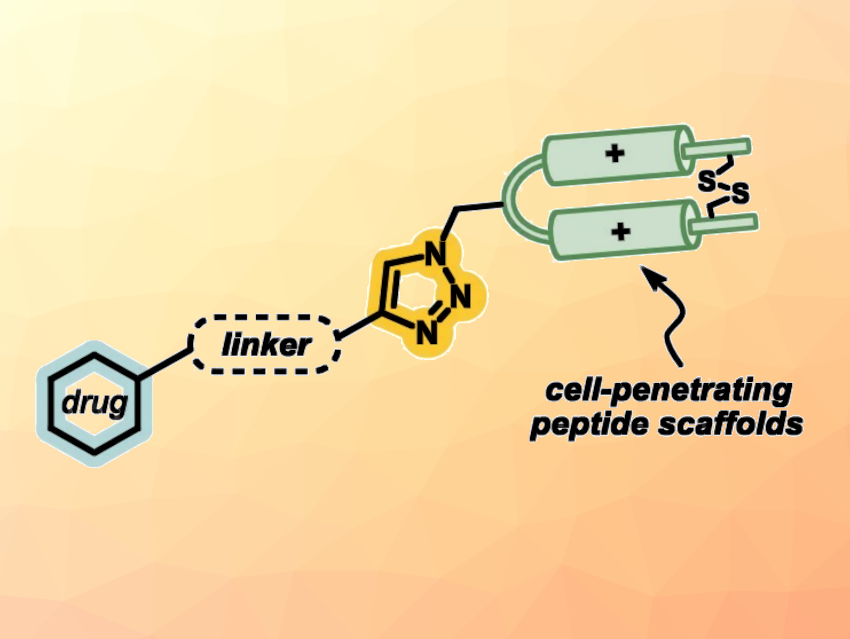Malaria is a significant global health challenge, complicated by emerging resistance of the parasite that causes the disease, Plasmodium, to most available therapeutics. Lara Rebecca Malins, Australian National University, Acton, Australia, and colleagues have developed peptide-drug conjugates (PDCs, simplified structure pictured) that could provide a new approach for the development of malaria treatments.
PDCs can use specially designed peptides to cross cell membranes and deliver drug cargos directly into infected cells. The team utilized a suite of peptides, including a human protein-derived peptide (PDIP) that is antiplasmodial and selectively enters Plasmodium-infected red blood cells. The PDCs aim to repurpose existing antimalarial drugs (primaquine, tafenoquine, artesunate, methotrexate) that have poor safety or resistance profiles by linking the drugs to such peptides.
The researchers synthesized a range of PDCs, using click chemistry to link the drug molecules and the peptides, and screened them for activity against P. falciparum. The PDCs have low-nanomolar to micromolar potencies, which are driven by the drug cargo, but also influenced by the peptide. Overall, the work shows possible pathways for the development of PDCs with dual modes of action against Plasmodium, which may aid in the fight against resistance.
- Exploring the Utility of Cell‐Penetrating Peptides as Vehicles for the Delivery of Distinct Antimalarial Drug Cargoes,
Caitlin L. Gare, Isabella R. Palombi, Andrew M White, Marina Chavchich, Michael D. Edstein, Aaron Lock, Vicky M. Avery, David J. Craik, Brendan J. McMorran, Nicole Lawrence, Lara Rebecca Malins,
ChemMedChem 2024.
https://doi.org/10.1002/cmdc.202400637




